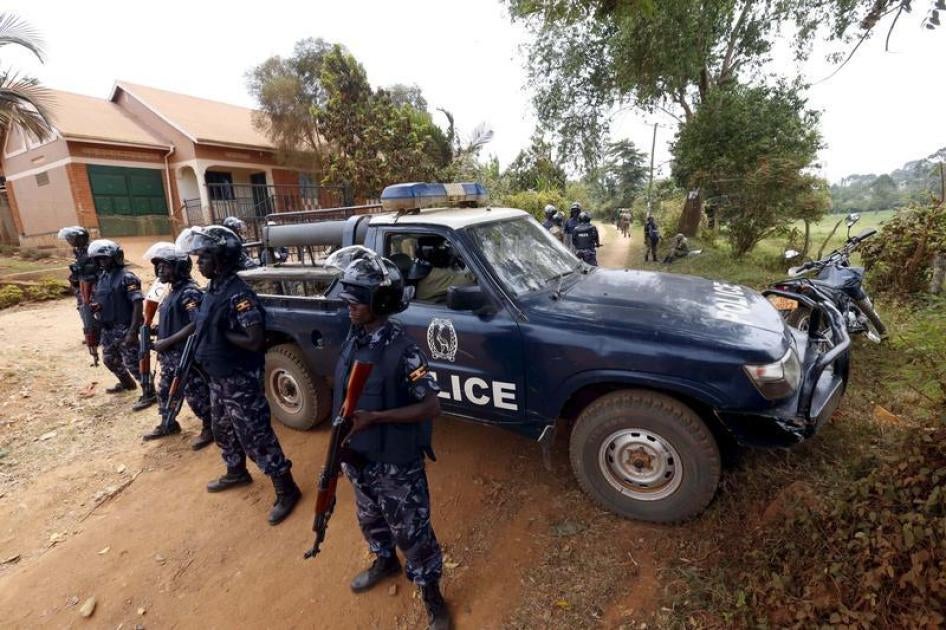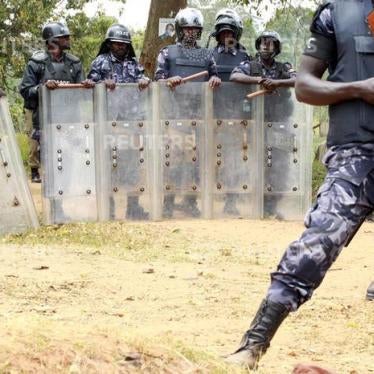Uganda’s new police leadership has expressed a willingness to address police torture and mistreatment of suspects, a welcome commitment. Between 2012 and 2016, the Uganda Human Rights Commission received over 1,000 allegations of police-orchestrated torture, but the real numbers of those tortured in custody are likely much higher.
This, despite the fact that Uganda is party to the United Nations Torture Convention and one of only 10 African countries with anti-torture legislation. Sadly, there has been wide gap between the aspirations of those documents and implementing the obligation to end torture in Uganda.
On June 26, the UN International Day in Support of Victims of Torture, we offer these five concrete actions senior police leadership should take to work to end police torture:
- Publicly declare a zero-tolerance policy for torture and mistreatment of anyone in police custody. Send a circular to all police posts making clear that any officer responsible for torture or mistreatment will face both administrative and criminal sanctions, as appropriate to their personal liability. This could include a prison sentence and job loss. The circular should also be available to the general public.
- Mandate senior police officials to encourage people to report allegations of torture or mistreatment by police. They should also proactively question those detained or imprisoned to ascertain if they faced mistreatment or torture during police custody and then document those allegations of abuse. Officers should investigate all allegations in collaboration with the directorate of public prosecution, ensuring charges are brought under the Torture Prohibition and Prevention Act, where appropriate.
- Publicly and unequivocally disband all of Uganda’s unregulated paramilitaries, including Kiboko Squad, the Boda Boda 2010, Crime Preventers, Kifeesi, and other such units created by the past administration.
- Ensure police training makes clear the distinction between the role and function of police and of the military in enforcing law and order. Trainings should emphasize non-partisan policing and teach skills of crowd control and policing based on international standards on use of force and firearms. This means learning to use restraint in protests, how to de-escalate situations to protect the rights of protesters, how to apply nonviolent means before resorting to force, and to use lethal force only when strictly unavoidable to protect life.
- Work with parliament to establish a new, genuinely independent police oversight body with the legal powers to initiate prosecutions in cases of police misconduct.
The promises of Uganda’s police leadership to take on torture are good news. But without learning from the past and taking robust action to address abuses, police torture will continue unchecked.









